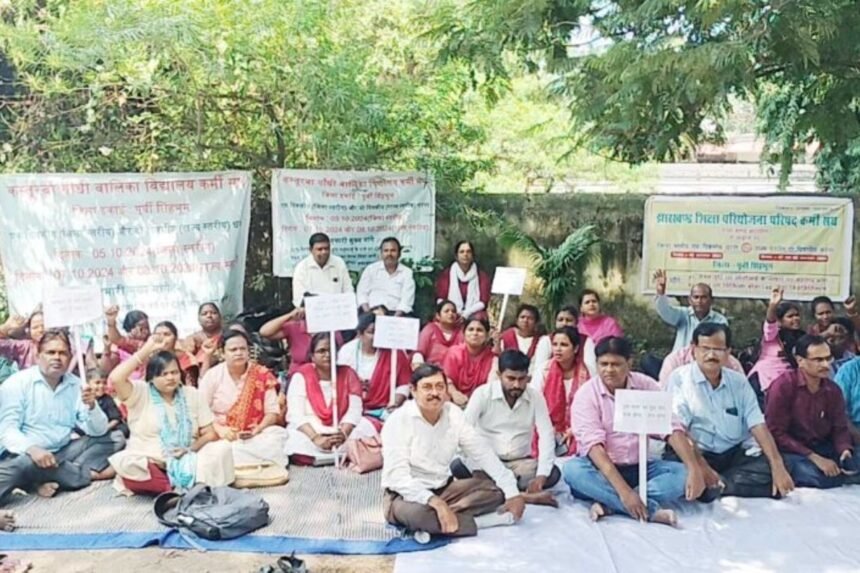Jamshedpur, October 5: The Jharkhand Education Project Council Union, alongside the Kasturba Gandhi Residential School Union, staged a symbolic one-day protest in front of the District Education Project Office, advocating for their three key demands on 05-10-2024.
The protest highlights ongoing grievances concerning employee remuneration and job security, drawing attention to the plight of contract teachers across the state.
The primary demands articulated during the demonstration include equal pay for equal work, a 50% increase in the salary scale, the provision of pensions, Employee Provident Fund (EPF) and medical allowances, as well as the direct regularization of employees who have served for over a decade.
Union President’s Statement
Rajiv Sharan, the state president of the Jharkhand Education Project Council, emphasized that the contract workers were initially promised regularization and government benefits as their service tenure increased.
“Despite serving for more than ten years, we are yet to receive equal pay or any governmental facilities. Today’s symbolic protest underscores our resolve; if our demands are not met, we will escalate our actions,” Sharan stated.
He warned of planned protests in Ranchi on October 7 and 8, and hinted at a potential indefinite strike following the Durga Puja festivities should the government continue to overlook their demands.
Background Context
The Jharkhand Education Project has employed approximately 3,000 contract teachers statewide, with over 150 of these educators working in the East Singhbhum district alone.
Contract employment in the educational sector often leaves workers vulnerable, lacking job security and the benefits associated with permanent positions.
During the protest, union members held placards and banners, calling attention to their situation and demanding justice.
Many expressed their frustrations about the lack of governmental response to their previous appeals.
Potential Consequences of Unmet Demands
The situation presents a critical juncture for education in Jharkhand.
Should the government fail to address these concerns, the proposed indefinite strike could disrupt the education system significantly, impacting students and teachers alike.
The union’s demands are not just financial but represent a broader call for recognition and stability within the educational workforce.
If contract educators are not granted fair compensation and regularization, it could lead to a decline in the quality of education delivered to students across Jharkhand.
Conclusion
As the Jharkhand Education Project Council Union continues to voice their demands, the coming days will be pivotal. The government’s response will not only affect the future of thousands of educators but also shape the educational landscape in the state.
The union remains resolute, preparing for further action should their concerns remain unaddressed, calling upon the state to prioritize the welfare of its education workers.






